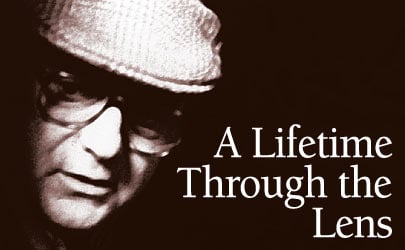 |
||||
 |
|
|||
Delli Colli’s collaboration with Leone reached its apogee with Once Upon a Time in America (1984), a sweeping gangster epic that earned acclaim at Cannes but was radically cut down in the editing room by its U.S. distributor. Leone’s original cut received a few special screenings in the States and only recently became available on home video. “Once Upon a Time in America was a long film because there were a lot of interruptions [during production], thanks to Sergio’s meticulousness and his desire to make a film that would be unique in its genre,” says Delli Colli. “First, we couldn’t find the right actors because he had specific types in mind, but we kept looking. Even though he couldn’t speak a single word of English, he was able to make himself understood by using French, always with a smile on his lips. The American actors loved working with him. The interiors were shot in Rome, at the De Paolis Studios, and the exteriors were shot in a Puerto Rican neighborhood in New York. It was the sets that inspired my choices in terms of the cinematography. The story is a complex one, but when you see the film, you understand that it was worth the trouble. It displays all of Sergio’s artistry.” Delli Colli also made four films with Federico Fellini, including The Voice of the Moon (1990), Intervista (1987) and Ginger and Fred (1986). “Fellini was fairly easy to work with,” he observes. “You just had to get to know him a little. He had the habit of changing things at the last minute, but I was aware of that, so I always had with me everything I needed to deal with his improvisations. Fellini never worked with notes or a script; he invented everything on the spot. He was very specific about cinematography on a shot-by-shot basis. For The Voice of the Moon, we did everything in the dark of night, which called for a lot of inventiveness. For example, for the scene with the fireflies, I had tiny lamps made that we suspended from fishing rods so they would dance in front of the camera. Fellini had been thinking about using real fireflies — he didn’t know they had become extinct!” During his seventh decade of filmmaking, Delli Colli teamed with director/actor Roberto Benigni on Life Is Beautiful (1997). “When I did Life Is Beautiful, I was torn. I initially wanted to use dramatic light but instead went with [visuals] more in the style of the classic comedies. Life Is Beautiful is a comedy, even when it becomes dramatic. With Benigni, as with any comedian, the audience has to be able to see his face clearly.” The film won the Academy Award for Best Foreign-Language Film, and Benigni won the Oscar for Best Actor. Delli Colli won David di Donatello Awards, Italy’s equivalent to the Academy Award, for his cinematography in Storie di orinaria follia (Tales of Ordinary Madness), The Name of the Rose (see AC Oct. ’86), Marianna Ucria and Life Is Beautiful. He has also won Silver Ribbons from the Italian National Syndicate of Film Journalists for The Gospel According to St. Matthew, La Cina è vicina (China is Near), Tales of Ordinary Madness, Once Upon a Time in America, The Name of the Rose and Marianna Ucria. “I’ve always tried to illuminate the stories being told using the simplicity of my feelings and the instinct that has guided me, that’s a part of me, with no irritations or exasperations,” says Delli Colli. “A better way to put it might be that I’ve never used preconceived formulas to get a certain result. Instead, I’ve always worked with the human and technical material that was available, and with the imagination and intuition of the moment. “One great actor I liked very much was Marcello Mastroianni. Like me, he played down his work and tried to demythologize it. Marcello always said that he was lucky because he had the best job in the world, and I share that feeling. I’ve met great professionals who have allowed me to express myself as best I can through images. If anyone asks me how I created my films technically, I always tell them to go to the theater and watch them again, because everything is right there. The magic of film can’t be put into words.”
Portions of this interview were excerpted with permission from Silvio Danese’s book Anni fuggenti, © RCS Libri SPA 2003, Bompiani. |
|
|||
|
<< previous || next >> |
||||
|
|
|
|
|
|
















